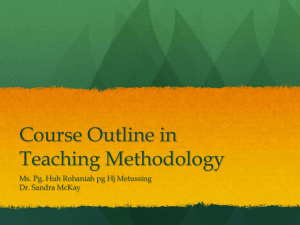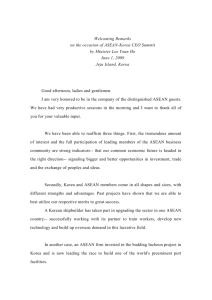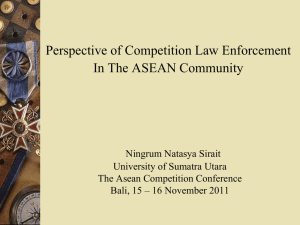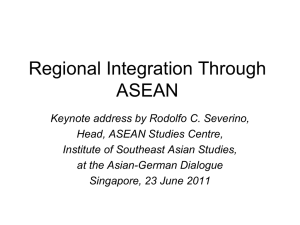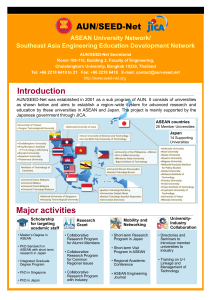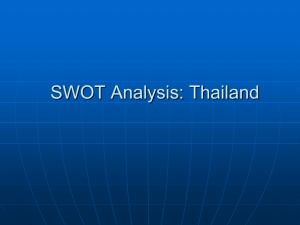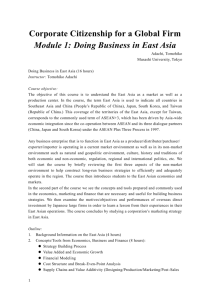Title: Asian Perspectives Series: ASEAN and the Future of Asia`s
advertisement
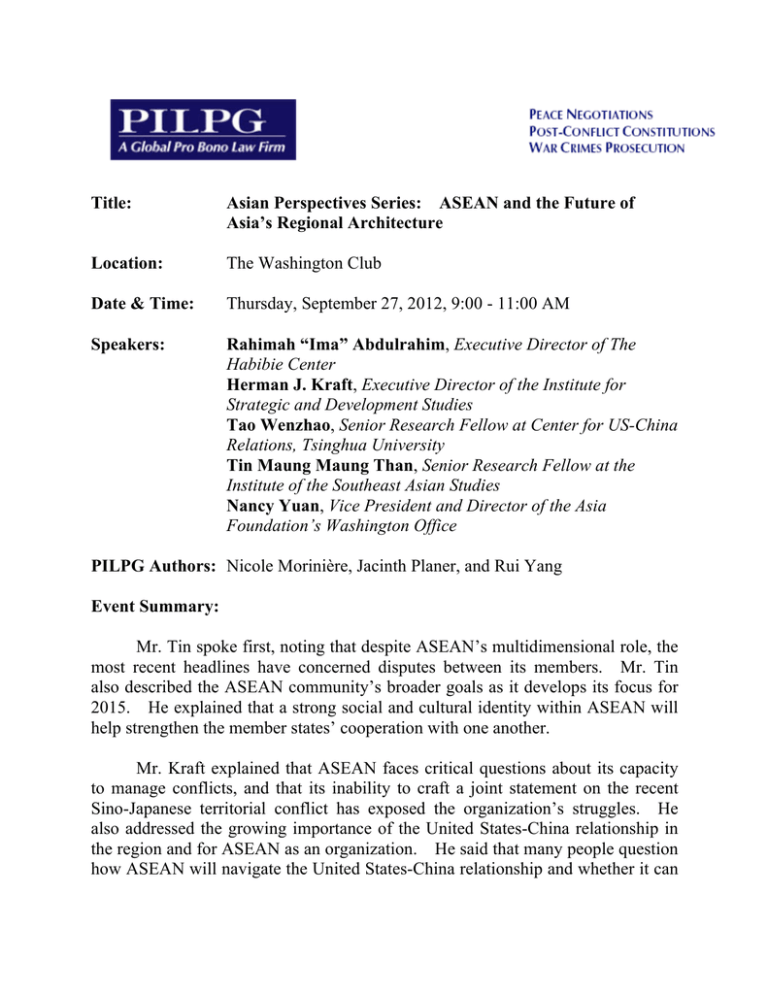
Title: Asian Perspectives Series: ASEAN and the Future of Asia’s Regional Architecture Location: The Washington Club Date & Time: Thursday, September 27, 2012, 9:00 - 11:00 AM Speakers: Rahimah “Ima” Abdulrahim, Executive Director of The Habibie Center Herman J. Kraft, Executive Director of the Institute for Strategic and Development Studies Tao Wenzhao, Senior Research Fellow at Center for US-China Relations, Tsinghua University Tin Maung Maung Than, Senior Research Fellow at the Institute of the Southeast Asian Studies Nancy Yuan, Vice President and Director of the Asia Foundation’s Washington Office PILPG Authors: Nicole Morinière, Jacinth Planer, and Rui Yang Event Summary: Mr. Tin spoke first, noting that despite ASEAN’s multidimensional role, the most recent headlines have concerned disputes between its members. Mr. Tin also described the ASEAN community’s broader goals as it develops its focus for 2015. He explained that a strong social and cultural identity within ASEAN will help strengthen the member states’ cooperation with one another. Mr. Kraft explained that ASEAN faces critical questions about its capacity to manage conflicts, and that its inability to craft a joint statement on the recent Sino-Japanese territorial conflict has exposed the organization’s struggles. He also addressed the growing importance of the United States-China relationship in the region and for ASEAN as an organization. He said that many people question how ASEAN will navigate the United States-China relationship and whether it can do so effectively. this effort. He affirmed his belief that ASEAN can play a central role in Ms. Abdulrahim expressed concerns with ASEAN’s weakness in effectively implementing its “people to people” approach. She believes that many people in the region remain unaware of its impact. She cited ASEAN’s process of revising its human rights declaration as reflective of this challenge, and noted that ASEAN’s consensus-based approach does not always incorporate the views of non-governmental people or groups. She believes that ASEAN should direct more efforts toward raising public awareness about ASEAN’s role. Mr. Tao spoke about the United States-China relationship in the region and its impact on ASEAN. He remarked that the United States-China bilateral relationship has progressed greatly since the 1980s, and that today’s issues are not just bilateral, but also regional and global in scope. He emphasized that economic interdependence and trade between China and the U.S. have continued to deepen, and that the two states must forge a new type of great power relationship. The new relationship, he said, should be based on peaceful coexistence, friendly competition, and outcomes that are not just “win-win,” but “win-win-win” in benefiting the region as a whole. PILPG Questions & Summary of the Responses: Two PILPG research associates asked questions during the question and answer session. One PILPG research associate asked Mr. Tao what role the U.S. should play in the territorial dispute between China and Japan, and how increased U.S. influence in the Asia-Pacific region could shape ASEAN’s future. In response, Mr. Tao emphasized the importance of a neutral U.S. position in is essentially a bilateral matter between China and Japan. He also noted that expanded U.S. influence could have an impact on regional dynamics in many ways that are still uncertain. The second PILPG research associate asked Mr. Tao and Mr. Tin what influence ASEAN has had in the political transition underway in Burma and what role China might play in the process. Mr. Tao said that China supports Burma’s integration and has pressed the United States to lift sanctions. He noted that Burma’s transition and that its relationship with the United States is ultimately left to the Burmese government. Mr. Tin noted that Burma has struggled to navigate between the United States and China as it undergoes political changes. 2
